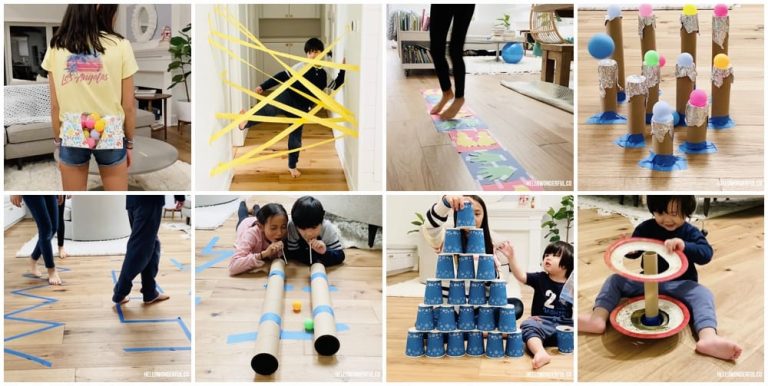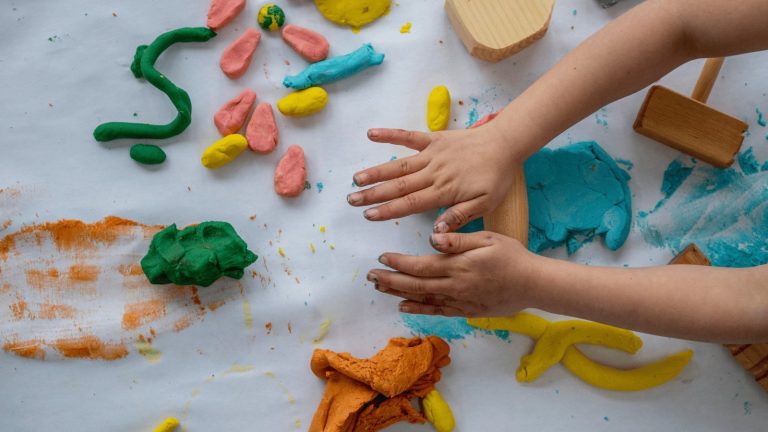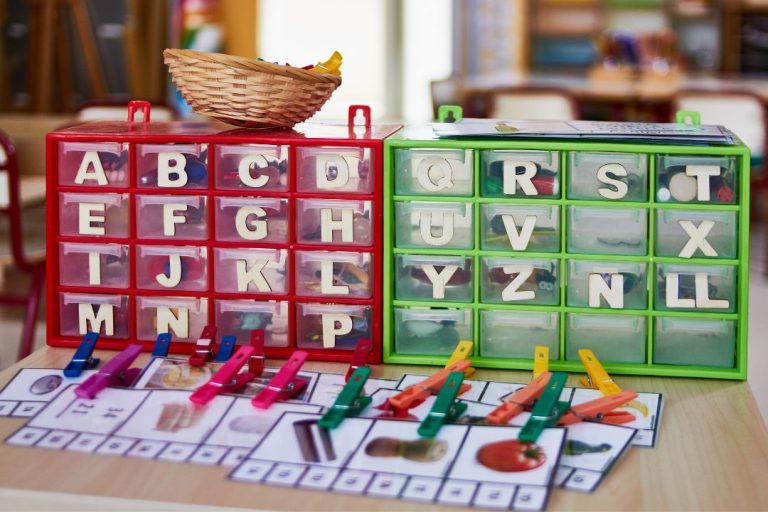Questions to Ask Preschool Tour: Discover the Perfect Environment!

Questions to ask during a preschool tour include: “What is the student-teacher ratio?” And “What is the curriculum and approach to education?”
When considering a preschool for your child, it is important to gather all the necessary information to make an informed decision. We will explore the key questions to ask during a preschool tour to ensure that the institution meets your child’s needs.
Additionally, we will discuss the importance of visiting the facility in person, observing the classroom environment, and interacting with the staff. By asking the right questions and thoroughly assessing the preschool, you can provide your child with a strong foundation for their educational journey.
Pre-tour Checklist For Preschools
Are you ready to tour preschools? Don’t forget to ask these important questions to ensure your child’s safety, learning environment, and curriculum align with your expectations.
When you are selecting a preschool for your child, it is important to visit and take a tour of the facility. This will give you the opportunity to see the environment, meet the staff, and ask any questions you may have. To ensure that you make the most of your preschool tour, it is helpful to have a pre-tour checklist. This checklist will help you gather all the necessary documentation and information you need to make an informed decision. Here are some important points to consider in your checklist:
Importance Of A Preparatory List
Having a preparatory list before your preschool tour can make the entire process much smoother for you and your child. By being prepared, you can ensure that you have all the necessary information and documentation at hand, and that you don’t forget any important questions or concerns you want to address during the tour. It can also help you feel confident and organized, which will contribute to the overall success of the visit.
Essential Documentation And Id
Before going on your preschool tour, make sure you have all the essential documentation and identification that the facility may require. This includes your child’s birth certificate or passport for proof of age, as well as any medical or vaccination records that may be necessary. It is also important to bring a valid ID for yourself, as the preschool may require it for security purposes. Having these documents readily available will help streamline the enrollment process if you decide to choose the school.
Notes On Child’s Specific Needs
Every child is unique, with different strengths, weaknesses, and needs. It is crucial to take into account your child’s specific requirements when selecting a preschool. Before your tour, take some time to note down any specific needs your child may have. This can include any allergies, dietary restrictions, medical conditions, or behavioral considerations. By communicating these needs to the preschool, you can ensure that they have the necessary resources and accommodations to support your child’s well-being and development.
By following this pre-tour checklist, you can make the most of your visit to potential preschools. Being prepared with the necessary documentation and information will help you gather all the details you need to make an informed decision about your child’s education and overall well-being. Use this checklist as a guide to ensure that your preschool tour is productive and meets your expectations.

Credit: kidscareclub.com
Incorporate ‘Questions To Ask Preschool Tour’
If you’re in the process of choosing a preschool for your child, it’s important to visit the schools you’re considering to get a firsthand look at the environment and ask important questions. Asking the right questions during a preschool tour will provide you with essential information to make an informed decision. In this blog post, we’ll guide you on how to incorporate “Questions to Ask Preschool Tour” to ensure you gather all the necessary details you need.
Phrasing Questions For Clarity And Detail
When asking questions during a preschool tour, it’s crucial to phrase them in a way that encourages the tour guide to provide clear and detailed responses. By asking specific questions, you’ll gain a better understanding of what the preschool offers and determine if it aligns with your child’s needs. Consider phrasing questions like:
- What is the student-teacher ratio in each classroom?
- Can you explain the curriculum and teaching methods used?
- What kind of daily routines and activities can my child expect?
- How do you handle discipline and behavior management?
- Can you provide examples of how you promote social and emotional development?
By asking questions like these, you’ll gain insight into important aspects of the preschool’s operations and educational approach.
Balancing General Inquiries With Specific Concerns
During a preschool tour, it’s essential to strike a balance between general inquiries and specific concerns. While it’s important to ask general questions about the school’s overall philosophy and policies, don’t shy away from addressing your specific concerns. This will help you gauge how well the preschool can accommodate your child’s unique needs. Be sure to ask about:
- How do you support children with special needs or allergies?
- What measures do you have in place for health, safety, and security?
- How do you handle transitions, such as the entry into preschool or the transition to kindergarten?
- What extracurricular activities or opportunities for parent involvement are available?
- How does the school communicate with parents regarding their child’s progress?
Incorporating specific concerns alongside general inquiries will allow you to obtain a comprehensive understanding of how the preschool caters to individual children’s needs.
Evaluating The Learning Environment
When choosing a preschool for your child, it is important to evaluate the learning environment to ensure it aligns with your child’s educational needs and preferences. The learning environment plays a crucial role in your child’s development, fostering their curiosity, creativity, and love for learning. In this section, we will explore the key factors to consider when evaluating the learning environment of a preschool tour.
Classroom Size And Student-teacher Ratio
The size of the classroom and student-teacher ratio are essential factors that directly impact the quality of education your child will receive. A low student-teacher ratio allows for more individualized attention, fostering better learning outcomes and emotional support for each child. When visiting a preschool, consider inquiring about the average classroom size and the student-teacher ratio in each class the program offers. This information will help you determine if your child will receive the attention they need to thrive in their learning environment.
Learning Methodologies And Philosophies
The learning methodologies and philosophies embraced by a preschool can greatly influence your child’s educational experience. Each child has unique learning styles, and it is important to find a preschool that aligns with your child’s needs. During your preschool tour, inquire about the teaching approaches employed, such as Montessori, Reggio Emilia, or play-based learning. Understanding the preschool’s approach will give you insights into how your child will engage with the curriculum, fostering their development and love for learning.
Availability Of Special Programs Or Resources
Along with the core curriculum, it is essential to consider the availability of special programs or resources that cater to your child’s individual needs. These programs can include language classes, art or music enrichment, physical education, or personalized learning plans for children with special needs. When visiting a preschool, inquire about the availability and accessibility of these special programs or resources. This will ensure that your child receives a well-rounded education that nurtures their interests and strengths.
By evaluating the learning environment of a preschool tour, considering factors like classroom size and student-teacher ratio, learning methodologies and philosophies, and availability of special programs or resources, you can make a well-informed decision about which preschool will best support your child’s educational journey and help them thrive.
Learning Outcomes And Milestones
Planning a preschool tour? Don’t forget to ask about the learning outcomes and milestones your child will achieve. Understanding these goals will give you a clear picture of their educational journey.
Assessment Methods For Child Development
Assessing a child’s development is crucial when choosing the right preschool. Parents want to ensure their child receives the best education and support possible. In order to make an informed decision, it’s important to understand the assessment methods used by the preschool. A reputable preschool will have a comprehensive approach to assessing a child’s development, encompassing various aspects such as academic, social, and emotional milestones.
The preschool should have a well-defined assessment process that includes regular observations, progress tracking, and developmental screenings. These assessments can take various forms, such as:
- Observation: Preschool teachers who are trained in child development will observe each child in different settings and record their observations. This allows them to gain insights into the child’s learning style, strengths, and areas for improvement.
- Progress Tracking: Teachers should keep track of each child’s progress over time, noting milestones achieved and areas that require further attention. This allows parents and teachers to work collaboratively on addressing any developmental gaps.
- Developmental Screenings: Preschools can conduct developmental screenings to assess a child’s overall development, including cognitive, social, and physical milestones. These screenings can help identify any potential delays or concerns early on, so appropriate interventions can be implemented.
By understanding the assessment methods used by the preschool, parents can have confidence that their child’s development will be closely monitored and supported.
Staff Qualifications And Ongoing Training
The qualifications and ongoing training of the preschool staff are vital considerations when selecting the right preschool for your child. Qualified and well-trained teachers can provide the necessary guidance and support to ensure a child’s learning and development.
When visiting a preschool for a tour, it’s essential to inquire about the qualifications of the teaching staff. Find out if the teachers hold relevant degrees, certifications, or credentials in early childhood education. This demonstrates their commitment to the profession and indicates that they have a solid understanding of child development principles and pedagogical approaches.
Equally important is ongoing training. Teaching methods and understanding of child development are continually evolving, and it’s crucial for teachers to stay up-to-date with the latest research and best practices. Ask the preschool about their approach to professional development. Do they provide regular training and workshops for their staff? How do they ensure their teachers are equipped with the knowledge and skills to support each child’s individual needs?
By ensuring that the preschool staff have the necessary qualifications and ongoing training, parents can be confident in the quality of education and care their child will receive.
Parental Involvement And Communication
Parental involvement and communication are crucial elements of a successful preschool experience. When parents and teachers collaborate effectively, a child’s learning and development thrive.
During a preschool tour, it’s essential to inquire about the preschool’s approach to parental involvement. Are parents encouraged to be active participants in their child’s education? Are there opportunities for parents to volunteer, attend events, or participate in parent-teacher conferences?
Open and effective communication is also key. Parents should feel comfortable approaching teachers and staff with questions, concerns, or updates about their child’s progress. Find out how the preschool communicates with parents. Do they have regular newsletters, emails, or online portals? Are teachers readily available for in-person or virtual meetings?
Transparency and collaboration between parents and preschool staff create a nurturing and supportive environment that fosters a child’s growth and development.
Health, Safety, And Nutrition Focus
During a preschool tour, it’s essential to prioritize the health, safety, and nutrition of your child. As a parent, you want to ensure that your little one will be in a secure environment, with proper attention given to cleanliness, emergency preparedness, and dietary needs. Asking the right questions at each facility will help you make an informed decision. Here are some key factors to consider regarding health, safety, and nutrition.
Cleanliness Standards And Procedures
When entrusting your child’s well-being to a preschool, cleanliness standards and procedures are crucial. Maintaining a clean and hygienic environment helps minimize the spread of germs and keeps illnesses at bay. To ensure that the preschool adheres to high cleanliness standards, consider asking the following questions:
- What are the cleaning procedures in place to prevent the spread of germs?
- How often are the toys, surfaces, and facilities disinfected?
- Are children encouraged and taught proper handwashing techniques?
By getting answers to these questions, you can gauge the preschool’s commitment to cleanliness and evaluate their attention to detail when it comes to maintaining a healthy environment for your child.
Emergency Preparedness And Safety Plans
Ensuring your child’s safety is of utmost importance, so it’s essential to inquire about the preschool’s emergency preparedness and safety plans. Here are some key questions to ask:
- What safety measures are in place to handle emergencies such as fires, natural disasters, or medical situations?
- Are all staff members trained in CPR and first aid?
- Do you have a designated evacuation area and a reliable communication system in case of emergencies?
Obtaining information about these safety measures will help you assess the preschool’s commitment to your child’s well-being, ensuring they are prepared and equipped to handle unexpected situations.
Meal Planning And Dietary Accommodations
Proper nutrition plays a vital role in your child’s growth and development. Inquire about the preschool’s meal planning and dietary accommodations to ensure they can meet your child’s individual needs. Consider asking the following questions:
- Does the preschool provide meals and snacks? If so, what is their menu like?
- Do they accommodate dietary restrictions and allergies?
- What steps do they take to ensure meals are nutritious and well-balanced?
Understanding how the preschool handles meal planning and dietary accommodations will give you peace of mind, knowing that your child will have access to nutritious meals that meet their specific nutritional needs.
Beyond The Classroom Activities
Choosing the right preschool for your child involves more than just assessing the quality of their classroom curriculum. To ensure a well-rounded education and development, it is essential to inquire about the extracurricular options and schedules offered by the preschool. Additionally, it’s important to understand the outdoor play policies and frequency and how they promote the physical well-being of your child. Finally, enquire about the preschool’s commitment to supporting social skills and emotional development. By asking these questions during your preschool tour, you can gain a deeper understanding of the opportunities available to enhance your child’s educational experience beyond the classroom.
Extracurricular Options And Schedules
One of the key factors in fostering a well-rounded preschool experience is the availability of extracurricular activities. These activities not only stimulate your child’s interests and passions but also provide avenues for further learning and skill development. As you embark on your preschool tour, ask about the range of extracurricular options available and their associated schedules.
Consider inquiring about a diverse array of activities, such as music lessons, dance classes, art workshops, or sports programs. This will help ensure that your child has access to activities that align with their interests and allow them to explore different areas of development. Furthermore, obtaining insight into the frequency of these activities will help you gauge how frequently your child will be engaged in these extracurricular pursuits.
Outdoor Play Policies And Frequency
In today’s world, it is increasingly crucial to encourage children to embrace an active lifestyle. Outdoor play not only promotes physical health but also fosters cognitive development, social skills, and emotional resilience. During your preschool tour, ask about the preschool’s outdoor play policies and how frequently children are given the opportunity to engage in outdoor activities.
Inquire about the duration of outdoor playtime and whether it aligns with recognized standards for your child’s age group. Understanding the policies in place will help you assess how the preschool prioritizes the well-being and development of its students. By providing ample time for outdoor play, the preschool indicates its commitment to creating a nurturing environment that allows children to thrive both academically and physically.
Social Skills And Emotional Development Support
Social skills and emotional development are fundamental aspects of a child’s growth, and a quality preschool will actively support this aspect of their education. During your preschool tour, inquire about the preschool’s strategies and programs that promote social skills and emotional well-being.
Ask about the preschool’s approach to conflict resolution, how they encourage cooperation and teamwork, and how they foster empathy and emotional intelligence. Understanding the methods employed by the preschool will provide insights into how your child’s social and emotional growth will be nurtured. A preschool that prioritizes supporting these essential skills will equip your child with the tools they need to succeed not only in their academic journey but also in their personal and social lives.
Assessing Community And Culture
When searching for the right preschool for your child, assessing the community and culture of a school is crucial. The environment in which your child will learn and grow will shape their early educational experience. By diving deeper into aspects such as school values and community involvement, teacher-parent relationship dynamics, and student diversity and inclusivity practices, you’ll gain a better understanding of the preschool’s overall atmosphere and what it has to offer your child.
School Values And Community Involvement
The values upheld by a preschool can greatly impact your child’s education and character development. Consider asking the following questions during your preschool tour:
- What are the core values that the school aims to instill in its students?
- How are these values incorporated into the curriculum?
- Does the school promote community involvement?
- Are there any initiatives or events that encourage parents and community members to participate?
By understanding the school’s values and their dedication to community involvement, you can determine whether it aligns with your family’s values and expectations.
Teacher-parent Relationship Dynamics
The relationship between teachers and parents plays a crucial role in a child’s education. Establishing effective communication and collaboration can ensure that your child receives the support they need both at home and in the preschool environment. During your preschool tour, ask the following questions:
- How does the school foster open communication between teachers and parents?
- Are there regular opportunities for parent-teacher conferences or updates on your child’s progress?
- How does the school encourage parents to get involved in their child’s learning?
Strong teacher-parent relationship dynamics can foster a positive and supportive learning environment for your child.
Student Diversity And Inclusivity Practices
A diverse and inclusive environment is important for a well-rounded education. It fosters understanding, tolerance, and appreciation for different cultures and perspectives. When assessing student diversity and inclusivity practices during your preschool tour, consider asking the following questions:
- How does the school promote diversity among its student body?
- Are there efforts in place to ensure all students feel included and valued?
- Are there programs or initiatives that celebrate diversity and encourage cultural exchange?
By choosing a preschool that prioritizes student diversity and inclusivity practices, you create a nurturing environment for your child to thrive and develop a broader worldview.
Child’s Comfort And Happiness Indicator
Curious about your child’s comfort and happiness during a preschool tour? Ask questions about the facilities, staff-child interaction, playtime, and daily routines to ensure a positive learning environment that nurtures your little one’s well-being.
When it comes to choosing the right preschool for your child, it is crucial to prioritize their comfort and happiness above all else. After all, this will be their first experience in an educational setting, and it should lay a strong foundation for their future learning and development. To ensure that your child will thrive in their new environment, there are a few key indicators that you should observe during a preschool tour.
Observing Child’s Engagement And Interaction
During the preschool tour, pay close attention to how the children in the facility engage and interact with each other and their teachers. This can provide valuable insights into the overall atmosphere and quality of the preschool. Look for the following indicators:
- Are the children actively participating in activities and conversations?
- Do the teachers encourage open communication and foster a sense of inclusiveness?
- Are the children comfortable expressing their emotions and ideas?
- Do the teachers actively engage with the children and show genuine interest in their learning?
By observing these aspects, you can gauge the level of engagement and interaction within the preschool, which ultimately contributes to your child’s comfort and happiness.
Gathering Feedback From Current Parents
Another reliable way to assess your child’s potential comfort and happiness in a preschool is by gathering feedback from current parents. These parents have firsthand experience with the facility and can provide valuable insights. Consider asking the following questions:
- Do you feel that your child is happy and comfortable attending this preschool?
- Have you noticed any positive changes in your child’s behavior or development since enrolling them here?
- How does the preschool communicate with parents and address any concerns or issues?
- Do you feel that the teachers genuinely care for the well-being of the children?
By gathering feedback from current parents, you can gain a better understanding of the preschool’s approach to ensuring children’s comfort and happiness.
After-tour Considerations And Follow-ups
Once the preschool tour is complete, it is important to consider the overall experience and reflect on the indicators you observed. This reflection process allows you to make a well-informed decision. Consider taking the following steps:
- Discuss your observations with your partner or family members.
- Consider any additional questions or concerns that have arisen.
- Contact the preschool to address any outstanding queries or to request further information.
By following up after the tour, you can ensure that you have all the necessary information to make the right choice for your child’s comfort and happiness.
Frequently Asked Questions Of Questions To Ask Preschool Tour
What Are The Benefits Of A Preschool Tour?
A preschool tour allows parents to see the facilities, meet the teachers, and observe the classroom environment. It helps them gauge if the preschool aligns with their child’s needs and ensures a smooth transition into formal education.
How Long Does A Preschool Tour Usually Last?
A preschool tour typically lasts around 30 minutes to an hour. This gives parents enough time to explore the campus, ask questions, and get a feel for the atmosphere. It is important to schedule the tour in advance to ensure availability.
What Should I Bring With Me On A Preschool Tour?
During a preschool tour, it is beneficial to bring a notepad and pen to jot down any important information. It is also helpful to bring a list of questions to ask the tour guide or teachers regarding the curriculum, safety measures, and extracurricular activities.
How Can A Preschool Tour Help In Making The Right Decision?
A preschool tour provides firsthand experience of the preschool’s environment, teaching methods, and interaction between teachers and students. This helps parents make an informed decision by evaluating if the atmosphere is nurturing, if the teachers are supportive and if the overall environment is conducive to their child’s development.
Conclusion
Choosing the right preschool for your child is a decision that requires careful consideration and research. By asking the right questions during a preschool tour, you can gather valuable information to help you make an informed choice. From curriculum and teacher qualifications to safety measures and parent involvement, these questions will ensure that you have all the necessary details.
Remember, finding the right preschool is a crucial step in your child’s early education journey, and asking the right questions will guide you in making the best decision for your little one.

With over 20 years of experience in early childhood education, Jane brings a wealth of knowledge to Classroom Journey. She specializes in play-based learning and has a passion for inclusive education.






